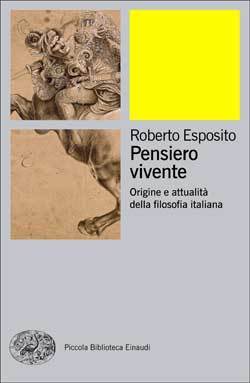
Author

Roberto Esposito was born in Naples where he graduated at University of Naples 'Federico II'. He is Vice Director of the Istituto Italiano di Scienze Umane, is Full Professor of Theoretical Philosophy and the coordinator of the doctoral programme in Philosophy. For five years he was the only Italian member of the International Council of Scholars of the Collège International de Philosophie in Paris. He was one of the founders of the European Political Lexicon Research Centre and the International Centre for a European Legal and Political Lexicon, which was established by a consortium made up of the Universities of Bologna, Florence, Padua, Salerno, Naples L'Orientale and Naples S. Orsola Benincasa. He is co-editor of Filosofia Politica published by il Mulino, the 'Per la Storia della Filosofia Politica' series for publishers Franco Angeli, the series 'Storia e teoria politica' for publishers Bibliopolis and the series 'Comunità e Libertà' for Laterza. He is editor of the 'Teoria e Oggetti' series published by Liguori and also acts as a philosophy consultant for publishers Einaudi.